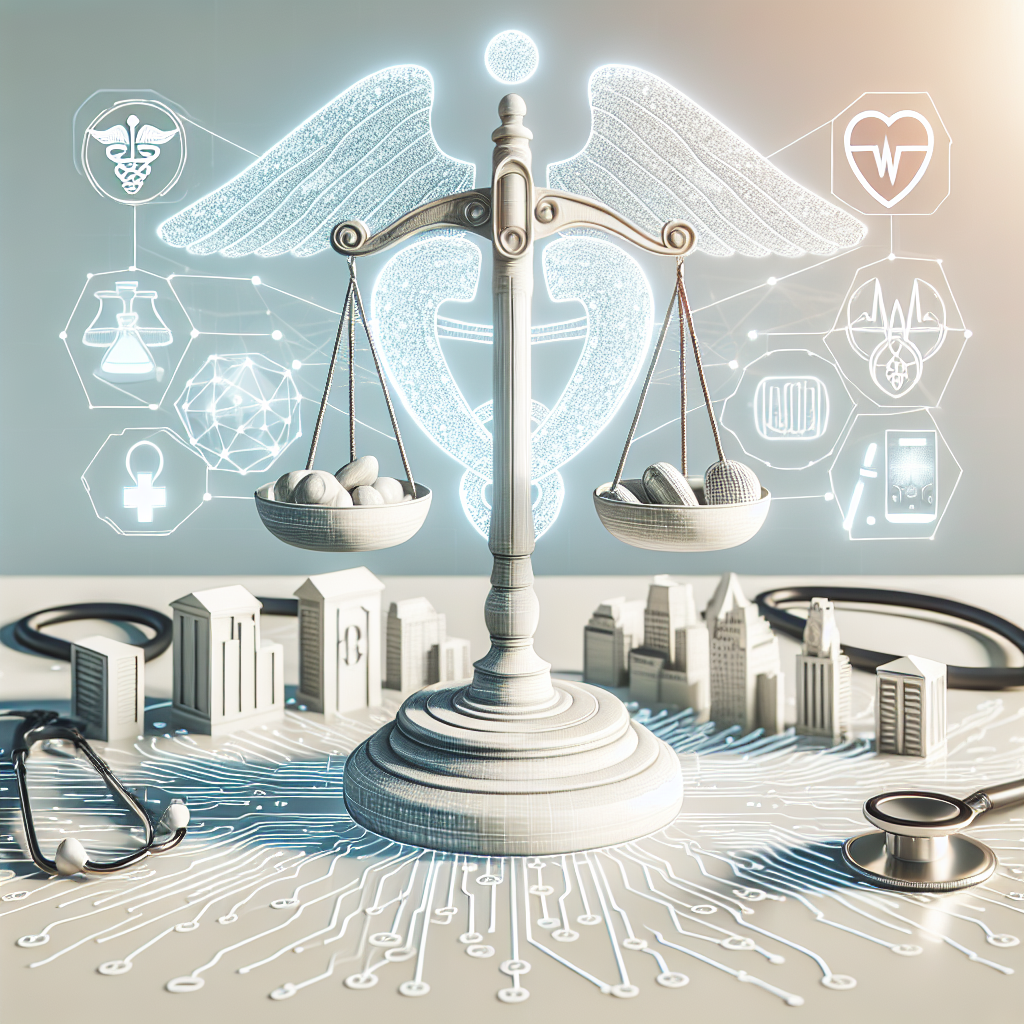Artificial Intelligence (AI) is revolutionizing the healthcare industry by providing innovative solutions to a wide range of challenges. From diagnosing diseases to predicting patient outcomes, AI has the potential to significantly improve patient care and streamline healthcare processes. However, as AI becomes more integrated into the healthcare system, it is crucial to ensure that its use is ethical and aligned with patient safety and privacy.
Ensuring ethical AI in the health system resilience is essential to building trust in AI technologies and maximizing their benefits. This article will explore the importance of ethical AI in healthcare, the challenges in implementing ethical AI, and strategies to ensure ethical AI in the health system resilience.
Importance of Ethical AI in Healthcare
Ethical AI in healthcare is critical for several reasons. First and foremost, ethical AI ensures that patient safety and privacy are protected. AI systems have the potential to process large amounts of sensitive patient data, and it is essential to ensure that this data is used responsibly and in compliance with privacy regulations.
Secondly, ethical AI promotes transparency and accountability in healthcare decision-making. AI algorithms can sometimes be complex and difficult to interpret, making it challenging to understand how decisions are made. By ensuring that AI systems are developed and implemented ethically, healthcare providers can have confidence in the decisions made by these systems and can better understand how they work.
Furthermore, ethical AI in healthcare helps to build trust between patients, healthcare providers, and AI systems. Trust is essential for the successful adoption of AI technologies in healthcare, and ensuring that these technologies are developed and used ethically can help to foster trust and confidence in their capabilities.
Challenges in Implementing Ethical AI
Despite the importance of ethical AI in healthcare, there are several challenges in implementing ethical AI systems. One of the main challenges is ensuring that AI systems are unbiased and do not perpetuate existing biases in healthcare. AI systems are trained on large datasets, and if these datasets contain biases, the AI system may learn and perpetuate these biases in its decision-making.
Another challenge is ensuring that AI systems are transparent and interpretable. AI algorithms can sometimes be complex and difficult to understand, making it challenging for healthcare providers to trust and use these systems effectively. Ensuring that AI systems are transparent and interpretable is essential for building trust and confidence in these technologies.
Additionally, there are challenges in ensuring that AI systems are secure and protect patient data. AI systems can be vulnerable to cyber-attacks and data breaches, and it is essential to implement robust security measures to protect patient data and ensure the privacy and confidentiality of this information.
Strategies to Ensure Ethical AI in Health System Resilience
To ensure ethical AI in health system resilience, several strategies can be implemented. One strategy is to ensure that AI systems are designed and developed with ethical principles in mind. This includes considering the impact of AI systems on patient safety and privacy, ensuring that AI systems are transparent and interpretable, and implementing security measures to protect patient data.
Another strategy is to regularly assess and monitor AI systems to ensure that they are operating ethically. This includes conducting bias audits to identify and address biases in AI systems, evaluating the performance of AI systems to ensure that they are making accurate and reliable decisions, and monitoring the security of AI systems to protect patient data.
Furthermore, involving stakeholders in the development and implementation of AI systems can help to ensure that these systems are ethical and aligned with patient needs. This includes engaging patients, healthcare providers, regulators, and other stakeholders in the design and development of AI systems to ensure that these systems meet the ethical standards and requirements of the healthcare industry.
FAQs
Q: How can healthcare providers ensure that AI systems are unbiased?
A: Healthcare providers can ensure that AI systems are unbiased by conducting bias audits to identify and address biases in AI systems, diversifying datasets to reduce biases, and implementing fairness metrics to evaluate the fairness of AI systems.
Q: How can healthcare providers ensure that AI systems are transparent and interpretable?
A: Healthcare providers can ensure that AI systems are transparent and interpretable by using explainable AI techniques to make AI systems more interpretable, providing transparency reports to explain how AI systems make decisions, and involving healthcare providers in the design and development of AI systems.
Q: How can healthcare providers ensure the security of AI systems and protect patient data?
A: Healthcare providers can ensure the security of AI systems and protect patient data by implementing robust security measures, such as encryption and access controls, conducting regular security audits to identify vulnerabilities, and complying with privacy regulations, such as HIPAA, to protect patient data.
In conclusion, ensuring ethical AI in the health system resilience is essential for building trust in AI technologies and maximizing their benefits. By implementing strategies to address biases, promote transparency, and protect patient data, healthcare providers can ensure that AI systems are ethical and aligned with patient safety and privacy. By prioritizing ethics in the development and implementation of AI systems, the healthcare industry can harness the full potential of AI technologies to improve patient care and drive innovation in healthcare.

